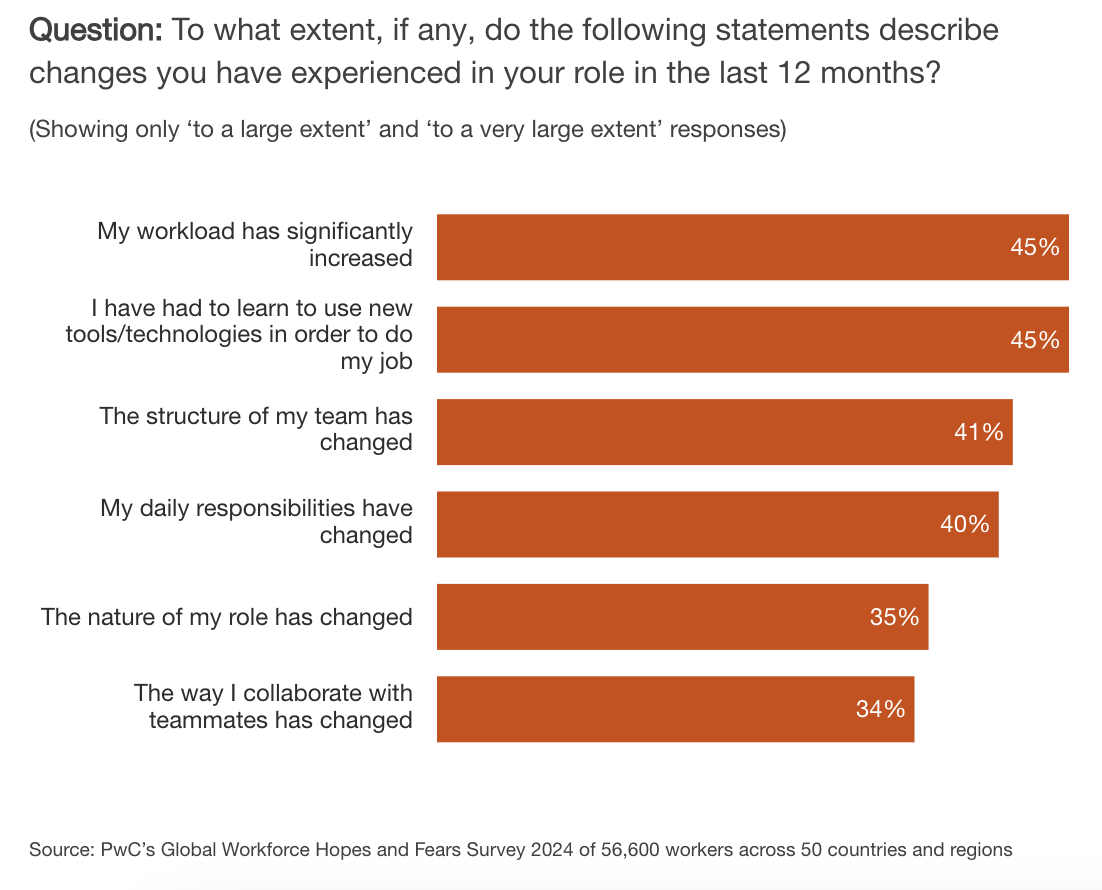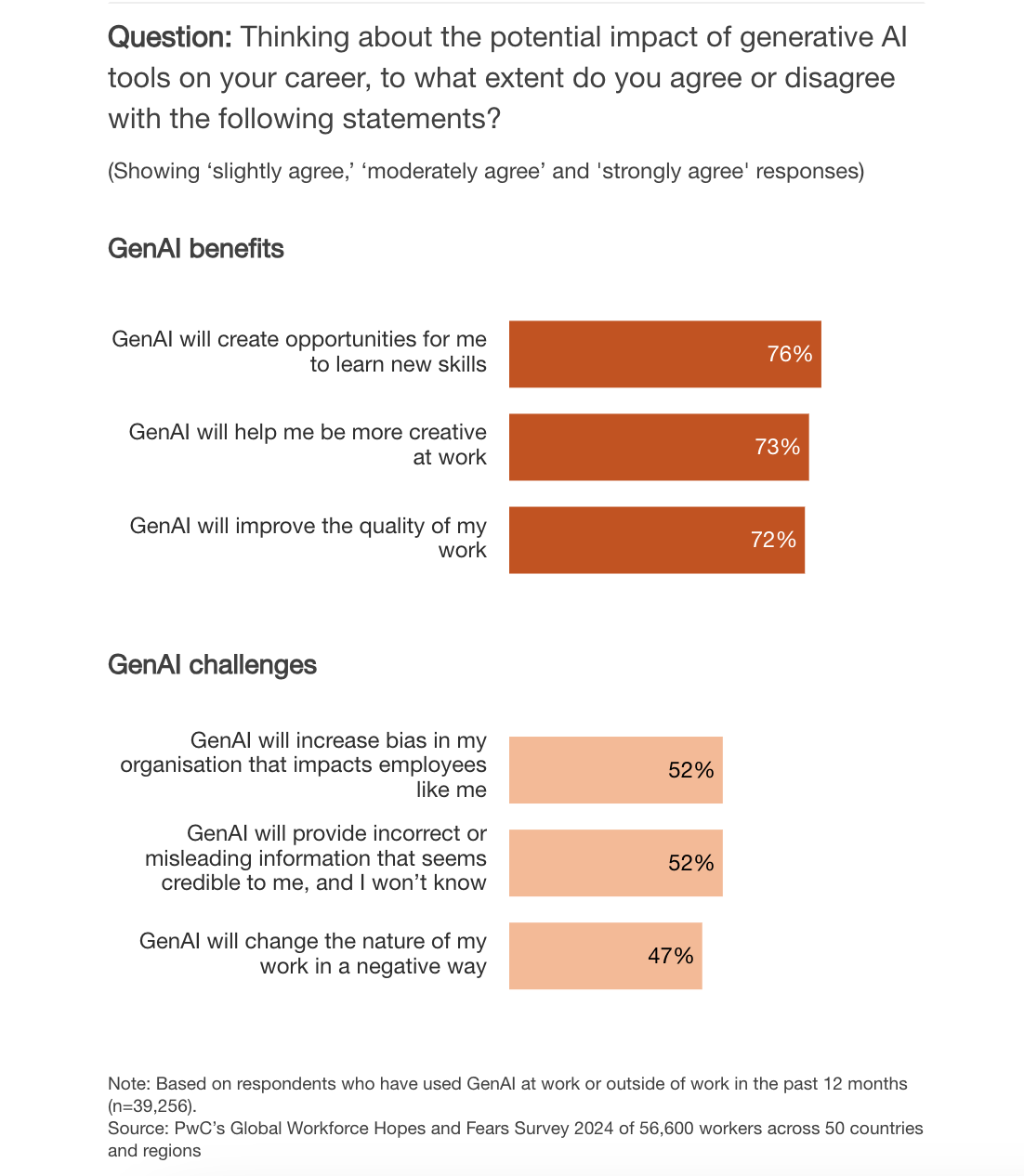
New report shows potential departures driven by strong desire for skills growth

Is the Great Resignation still a thing? A new report from PwC has revealed that more employees are considering switching jobs now than they did two years ago.
PwC's report, which polled over 56,000 workers worldwide, found that 28% are very or extremely likely to switch employers in the next 12 months.
This is higher than the 19% recorded in 2022, when employers were feeling the impact of the Great Resignation.
According to the report, the higher proportion of employees thinking of leaving comes amid growing prioritisation for skills growth and changes to their workload.
The study found that employees likely to switch employers in the next 12 months are nearly twice as likely to consider upskilling in their decision compared to those planning to stay (67% vs 36%).
This despite 60% of employees saying they feel at least moderate job satisfaction in their work, according to the report.
"The findings suggest that job satisfaction is no longer enough. Employees are placing an increased premium on skills growth in a climate characterised by constant technological change," said Carol Stubbings, Global Markets and Tax & Legal Services (TLS) Leader, PwC UK, in a statement.
According to the report, employees are prioritising skills growth in the wake of a changing workplace.
Nearly half of employees (45%) said their workload has increased significantly in the past year, while 62% said the pace of change at work has increased over the same time.
Another 41% said their team has changed, while 40% said their daily tasks in the workplace have changed.

To cope with the changes at work, the report found that employees are turning to generative AI for help.
Around three in four employees cite various benefits from using the technology, with most of them citing its help in creating new opportunities in learning new skills (76%).
"As workers face heightened uncertainty, rising workloads and continue to face financial stress, they are prioritising skills growth and embracing new and emerging technologies such as gen AI to turbocharge their growth and accelerate their careers," Stubbings said.

According to Stubbings, employers must ensure they are investing in employees and technological platforms to "mitigate employee pressures and retain the highest talent."
Pete Brown, Global Workforce Leader, PwC UK, also noted employers should be more proactive as employees put more premium on skills growth so they can remain relevant in a digital workplace.
"Businesses in turn must be proactive in their upskilling programs - prioritising the employee experience and being transparent," Brown said in a statement. "Because when you meaningfully engage your workforce, they become an accelerant for successful transformation."